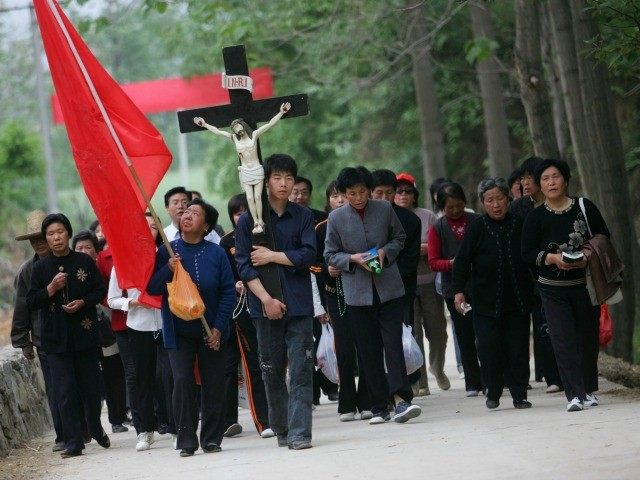ROME — Thousands of Catholics in the People’s Republic of China have followed the Masses live-streamed daily by Pope Francis in recent weeks thanks to WeChat, according to a glowing report by Vatican News.
WeChat, which is closely monitored and censored by China’s communist government, reportedly facilitated access to the pope’s daily Masses within the country.
Vatican News said that millions of faithful around the world have followed the papal Masses online, broadcast from the chapel of the pope’s Saint Martha residence within the Vatican.
The live broadcasts began on March 27, when Francis video-streamed a prayer event from an empty Saint Peter’s Square, asking God to bring the coronavirus pandemic to an end.
On March 30, the broadcast of the pope’s Mass began in China over social media, with people in China seeing the Mass live at 1:00pm local time, corresponding to 7:00am in Rome. The first live broadcast had 280 views and the numbers increased day by day, Vatican News said. In recent days, the number of people connected in real time daily has risen to between 7,000 and 8,000.
The celebrations have been broadcast by smartphone, via WeChat, the most popular application in China, but new technologies also allow for the video to be projected on a computer or television screen, making family viewing easier. Simultaneous translation of the pope’s addresses into Chinese was also provided by WeChat.
According to veteran Vatican journalist John L. Allen, Jr., the Vatican has been pulling out all the stops to woo Beijing into full diplomatic relations.
The Vatican is “covetous of a relationship with China, and often apparently willing to stifle objections and give away a great deal” in order to make headway, Allen wrote this week.
In short, “the Vatican is moving full-steam ahead in its courtship of Beijing, with the ultimate prize remaining full diplomatic relations, a secure legal standing for the church, and partnerships on the global stage,” Allen wrote.
In late April, the Chinese Communist Party (CCP) reopened businesses and tourism throughout the country but suspended all Christian church activities, from worship services to pilgrimages.
The seemingly arbitrary targeting of religious practice for the ban has led Christian leaders to suspect “a communist ploy to suppress religion,” according to a report from UCA News.
The state-controlled Chinese Catholic Patriotic Association and its official bishops’ forum, the Bishops’ Conference of the Catholic Church in China, jointly announced that all church activities would remain suspended for at least another month as part of measures to curb the spread of coronavirus.
The ban included the many traditional Marian pilgrimages carried out by the nation’s Catholics during the month of May. Seminaries and religious institutes that train church personnel also remained shuttered.
Local Christians voiced concerns that the communist regime was using the pandemic as a cover to suppress religion, since the notice came just as the government announced that the virus had been contained. Christian leaders noted that normal life has returned to Chinese cities and towns and that almost all businesses, including markets and tourist sites such as the Great Wall of China, have been reopened.
Beijing Catholic Li Xue said she found it strange that the CCP would cancel pilgrimages while opening tourist attractions that draw huge crowds.
“These tourist places are obviously more crowded and concentrated than the pilgrim centers,” she said. “The government has a bit too much control over religion. The authorities are using the epidemic as an excuse to curtail religious freedom, and that’s the scary part.”
A priest from Hebei, Father Dong, expressed similar sentiments.
“The Chinese Communist Party has always been hostile to religion. They are looking for opportunities to suppress the Church,” he said.
In its annual report for 2020, the U.S. Commission for International Religious Freedom (USCIRF) said that China is among the nations with the most egregious violations of religious liberty.
“In 2019, religious freedom conditions in China continued to deteriorate,” the report stated. “The Chinese government has created a high-tech surveillance state, utilizing facial recognition and artificial intelligence to monitor religious minorities.”

COMMENTS
Please let us know if you're having issues with commenting.